
How did you come to study environmental protection?
4 years ago we traveled to India because a friend told us about a sustainable project called Sadhana Forest. We lived there for 2 weeks in a kind of community where everyone has different tasks like preparing breakfast, taking care of the compost, planting and watering trees etc. The project was mainly about the reforestation of a deforested forest. Today you can find numerous animals there that used to live there. Actually, I already had an apprenticeship in Berlin and my friend Sasan would probably have gone in the direction of media design. But one day my girlfriend came to me and told me that she didn't want to go back to Germany and wanted to start her own project. That triggered a kind of crisis in everyone and so it happened that I canceled my apprenticeship and decided to study something sustainable. When we were back in Germany, we found out where there were courses in this direction and that's how we came across the environmental protection course in Bingen.
What were the most important findings during your studies?
Everything is connected and hard to separate. When planning, you have to take everything into account as much as possible, so you usually need different experts with whom you have to come to a common denominator. Environmental protection is about everything that is around us, including people. Therefore, we should not put ourselves above everything else and destroy the nature around us, otherwise the problems will come back to us.
What impact does our consumption have on the environment?
The society we live in is always striving to buy more. We are never satisfied with what we have. The car has to be bigger or faster, the house more beautiful and grand, and even if the cell phone still works well, we still want to hold the latest smartphone in our hands. It's not exactly sustainable. Huge amounts of resources are used and required for electronics, which of course have to be imported - mostly from developing countries. I don't think most people are aware of this. The clothes we buy should be from well-known brands, but still cheap. The working conditions of the people who produce them are not taken into account. For example, if a t-shirt costs €30 and in a few weeks it is reduced by 70%, it means that the store can afford it because it was made a lot cheaper, mostly by children. Many brands now advertise that they are environmentally conscious when they are not. This is called "greenwashing". However, the things we buy only make us happy for a short time and when we feel bad again, we just go shopping again.
In western countries we have seen people spend a lot of money when shopping, but then the cheapest meat ends up in the shopping cart. They don't really care about where this is coming from or have any relation to it. The meat and dairy industry is one of the biggest climate sinners. In addition, a lot of land is lost for livestock farming, on the one hand for factory farming itself, on the other hand for the cultivation of soya and other animal feed. This area could be used for growing fruit and vegetables and would provide much more yield for the world population.
In summary, what we want to say is that it is not about the consumption per se, but about the amount in which we consume things. We don't have to eat meat every day or keep buying new clothes that we don't need. There are now so many alternatives that we should also use.
How can we prevent climate change?
“Preventing” climate change will not work because it is indeed natural. However, we humans accelerate it 100-fold through the emissions we produce through our behavior. In itself, CO2 is not such a big problem, while methane and nitrous oxide are 28 times and 265 times more climate-friendly, respectively. However, the quantity makes the poison and since CO2 is emitted almost everywhere, it is the main contributor to man-made climate change. It is mainly produced when coal, oil or natural gas is burned, by traffic and by industry. So if we have the opportunity to use renewable energy as a source of electricity, we should use it. We can go to town by bike or bus instead of always taking the car. Methane and nitrous oxide, on the other hand, can only be avoided indirectly, because these gases are mainly produced in factory farming. Therefore, it is also important to pay attention to our consumption here, because our shopping list is also a ballot paper. There are more and more people who eat vegetarian or vegan food, which is why there are more and more offers and even companies that used to only sell meat are already considering offering only substitute products. We think the most important point is to create awareness, so that big companies and politicians realize how important it is to change something. Everyone should try to take action and not wait for politics to change. We therefore think that the "Fridays for Future" demos can definitely make a difference, as was already noticed in the last European elections. It is important to be heard and since it is very difficult to make a difference as an individual citizen, it must be done as a group.
What can we do for a more environmentally conscious and sustainable life?
Pay attention to what we buy and where it comes from. Shopping regionally and, if possible, seasonally and being able to go without something is a first step in the right direction. That doesn't mean we have to give up meat completely. Buying meat once a week instead of every day makes a difference. We can also take our own bags and fruit bags with us to go shopping to counteract the consumption of plastic. We can visit flea markets or buy used clothes online, we can also buy used electronics. We must counteract the big corporations such as Nestlé and show the shops that there are alternatives. When more people are made aware of these issues, we can make a difference.
 What is your everyday life like? What are you doing for the environment?
What is your everyday life like? What are you doing for the environment?We try to avoid plastic as much as possible. There is a packaging-free shop near us and there is a vegetable market at the weekend, where we sometimes shop packaging-free. I've been vegan for 2 years, Sasan has been vegetarian for a long time, so we don't buy milk, eggs and meat, only cheese. We also meet once a month with friends who are also vegan or vegetarian and cook together or everyone brings something to eat. It's a lot of fun and it's great to try new recipes. The “Fridays for Future” demo, which we also take part in, has recently been launched to demonstrate for the climate and to open people's eyes. Of course, adults can also take part there, not just pupils and students. We also try to do everything on foot or by bike, a car would be too expensive for us anyway.
A few final words?
As already mentioned, you don't have to pay attention to EVERYTHING, that would not be possible at all. For us, the shortcoming is travel, which we would find difficult to do without. Everyone has to set their own priorities and just because we live vegan/vegetarian doesn't mean that we have to do without everything else. We do what we can and weigh up beforehand what is important to us and how we can offset the emissions. We find every small step in the right direction remarkable. In addition, we should not forget that everything is connected and that the damage that we inflict on nature can eventually fall back on us. It is therefore important to remain critical and question things or change something yourself.
"Be the change you want to see in this world“. (Mahatma Gandhi)
Many thanks Sasan and Sophie for the interesting interview and for supporting Zeachild so well! #spreadlovenottrash
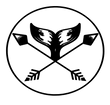
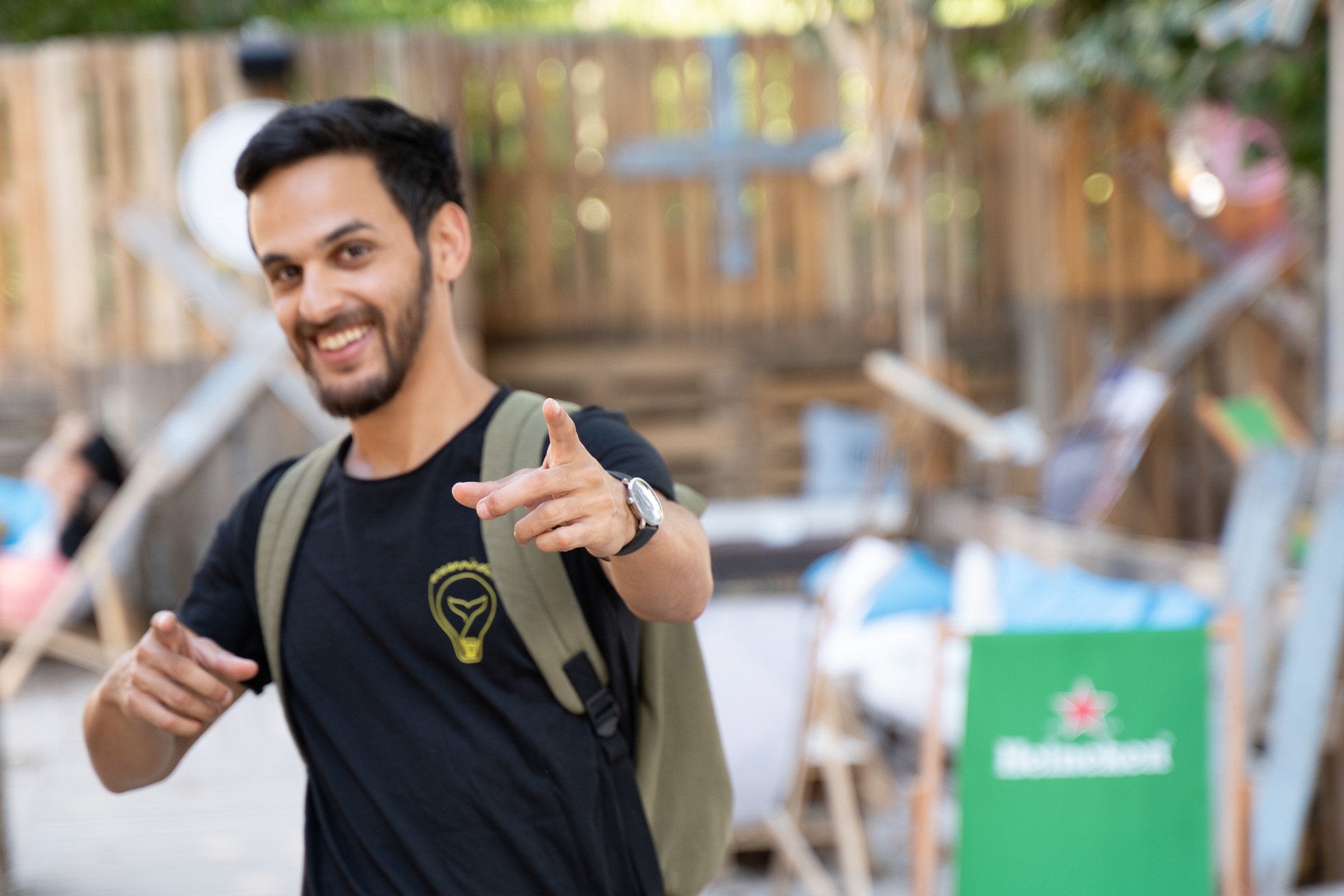
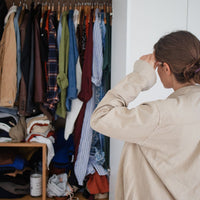
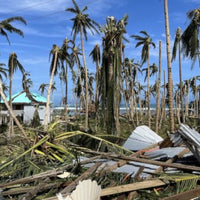

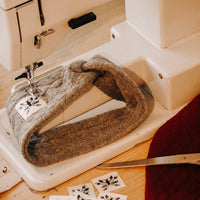
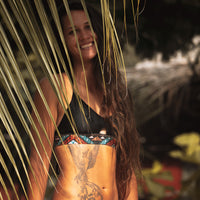
1 comment
Moses Lomax
March 09, 2023 at 03:03 PMHello zeachild.com webmaster, Your posts are always well thought out.